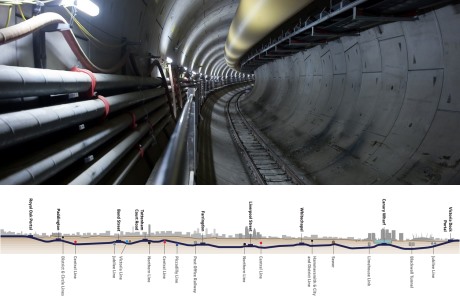The chairman of Britain's Olympic Delivery Authority has suggested that a similar body could be set up to construct nuclear power plants before selling them to the private sector.
The proposal for a new way to finance nuclear power plants as well as other kinds of key national infrastructure came from Sir John Armitt in an interview with Construction News. His ideas relate to his UK infrastructure experience, but would be equally applicable in other markets.
Armitt's proposal aims to address a difficulty faced by many nuclear utilities that want nuclear power in their portfolio, that the economics of a new reactor are front-loaded by high construction costs as well as the cost of capital to pay for that. The costs of operation, fuel and decommissioning are low and predictable and this means operating nuclear power plants are among the most reliable and cost-effective generators of electricity - but barriers to new build remain high in many markets.
 |
| An example of infrastructure delivery. One section of Crossrail's 48 kilometres of tunnels and an illustration of its route beneath Central London (Image: Crossrail) |
Armitt said, "Investors are more than happy to invest in things they can see a long, 30-year revenue stream, which clearly you're going to get from a nuclear power plant... an alternative approach would be to create a body rather like the Olympic Delivery Authority (ODA), which would be responsible for getting the first, maybe second, maybe third nuclear power plants built."
The ODA is a government body not affiliated to any department. It coordinated with several other large public bodies to manage the construction of the facilities for the London 2012 Olympic Games. This was seen as a success, and the ODA continues to manage the conversion and development of the Olympic sites for the long term. In the power sector a similar organisation could use a mix of public funds and business taxes to build a power plant, bring it to operation and then sell to a private company for profit.
Armitt pointed to the Crossrail scheme to create a major new rail line beneath London. With a nine-year construction schedule and a £14.8 billion budget of public funds sourced from local and business taxes, Crossrail represents the largest construction project in Europe.
The suggestion follows a trend across the global nuclear sector to find new ways to raise the funds for construction and share construction risk. Russia's state corporation Rosatom is constructing a nuclear power plant at Akkuyu in Turkey on a build-own-operate basis and plans to do the same in Vietnam. More usual is government support in the form of a loan guarantee for part of the construction cost which enables a utility to borrow more easily from the private sector. Reactor vendors are also being asked to invest and share construction risk: Hitachi bought Horizon Nuclear Power and proposes to use its joint venture subsidiary Hitachi-GE to build ABWR reactors at Wylfa and perhaps at Oldbury. It also would take an equity stake in Lithuania's Visaginas nuclear power plant, should that project go ahead.
Researched and written
by World Nuclear News






_15863.jpg)







